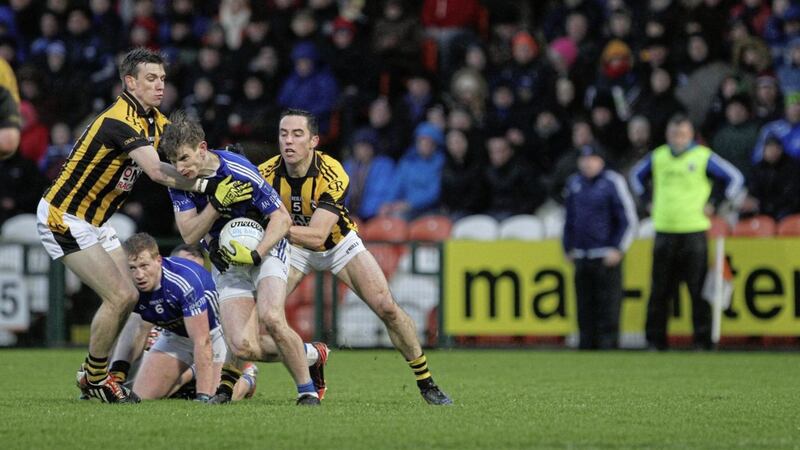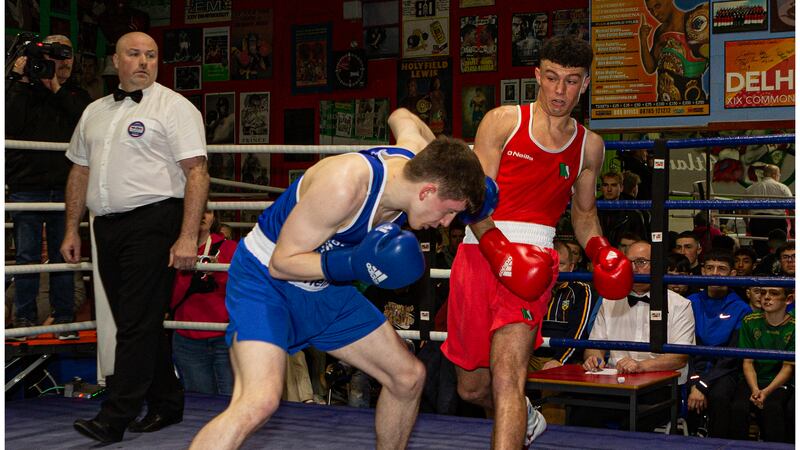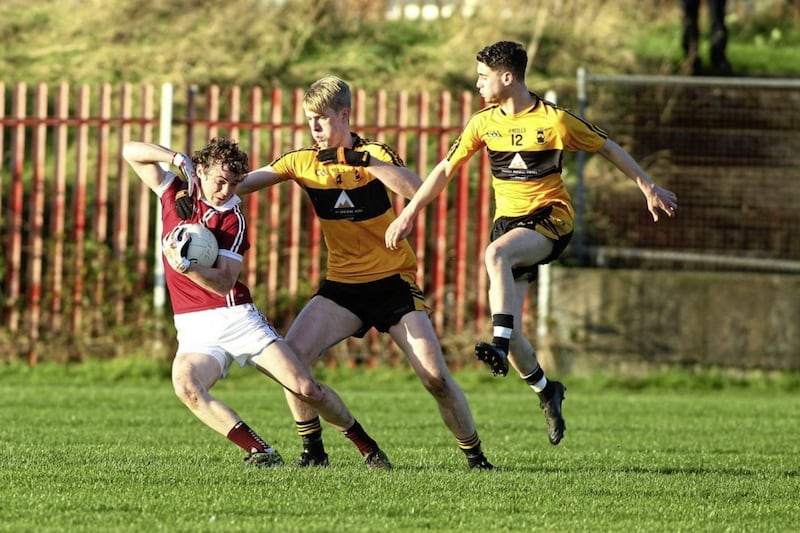THE Ulster club championship is unforgiving. It does not suffer fools gladly. This year, some clubs will be competing in it for the first time in a generation. Others frequently dine at the top table. Yet so few fulfil their potential or can claim to be genuine contenders.
Being a serial county championship winner is meaningless if success is not mirrored in Ulster.
After all, it is winners who are remembered. I was reared on stories of the great Clan na Gael team of the early ’70s, the Scotstown teams of the late ’70s and Burren teams of the ’80s. Despite their lack of provincial success in recent years, should Burren or Clan na Gael reclaim their county title they would immediately be given respect and kudos befitting of any favourite. Ask the bookie who is going to win Ulster and the response will be Slaughtneil or Scotstown.
Theses clubs have pedigree. Omagh will be in the mix by virtue of the fact that they are Tyrone champions. The Tyrone championship is the toughest of them all so anyone who wins it is to be respected.
I do not wish to be disrespectful to the other county champions, I am merely reflecting what history has shown us.
Of course it is up to the likes of Antrim’s Lámh Dhearg or Armagh Harps or even Donegal’s Kilcar to make their own history in this competition. But are they ready for it? There are a number of challenges that new teams and the underdogs have to overcome. Most notably, it requires a certain reframing of their mindset. Their original goal has been achieved and no doubt the parish has celebrated, as have the players. There is nothing wrong with celebrating, indeed it is essential to recognise achievements and to reward oneself. Those memories can serve to fuel future successes.
However, gone are the days of binge-drinking around your local town followed by a pub crawl of Belfast’s university district.
It is the fast-track way to becoming a first-round-loser statistic so common with newcomers.
Ulster matches come thick and fast. The pitches are firm, the opposition is prepared and battle hardened.
County championships are merely a stepping stone to greater opportunity.
In the same way that celebration of a first round match is irrational, so too is becoming a member of the ‘Monday club’ after a county final.
The natural break comes at the end of November when the Seamus McFerran Cup is safely behind glass doors. If players are not prepared to make that small adjustment and would rather celebrate what they’ve achieved thus far then so be it – it is my view that you have set your standards too low.
The quality of the Ulster club championship has really risen in the past decade.
I am always amazed how players from each county know each other so well, how they react to given situations or the way in which they sell a dummy or strike a penalty.
They know your name, where you attended school, who coached you as a kid, who your sporting influences are.
If you have a weakness, be prepared to have it exposed. It is arguably the toughest test a club player will face.
It is like playing against your local club only they have better quality players.
This can be a daunting experience if you cannot adapt and fight – metaphorically I mean.
That said, it is essential to maintain discipline. 14 men do not win in Ulster, unless you are playing against 13 – à la Slaughtneil versus Kilcoo. I’ve had experience of both sides of this fence.
Being defeated because of picking up a stupid red card is something that you will be remembered for.
When it comes down to it, winning in Ulster club is no different to winning at county level in that teams need the key components of a tight defence, ruthlessly efficient forwards and a reliable free-taker.
From October to the end of November, players get one chance to score or to win a match. It must be taken. An 80 per cent scoring rate is a must. This statistic rises for free takers.
One missed free could be the difference in winning a game or missing the boat.
I observed this happening when Scotstown’s Rory Beggan had an opportunity to draw against my club Crossmaglen Rangers in the Ulster final of 2015.
As we all know he is an exceptional striker of a placed ball.
On this occasion the free was 40 metres or less from goal, 15 yards to the right of the post – ideal for a right-footed kicker.
Inexplicitly, Rory opted to kick short, the ball was turned over and Cross went on to win that classic.
Teams should approach the Ulster club championship with conviction and a ruthless drive to win. Let others beat you if they are good enough, the last thing you want is to beat yourself.
Good luck to all the newcomers to the top table. Enjoy it, as it can be a long road back.








